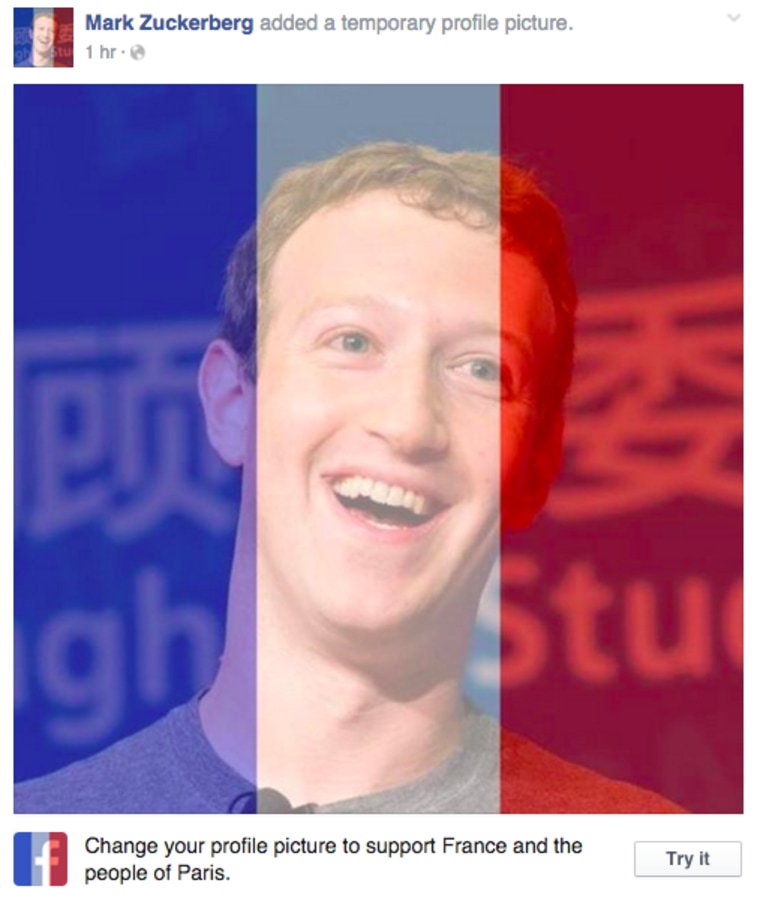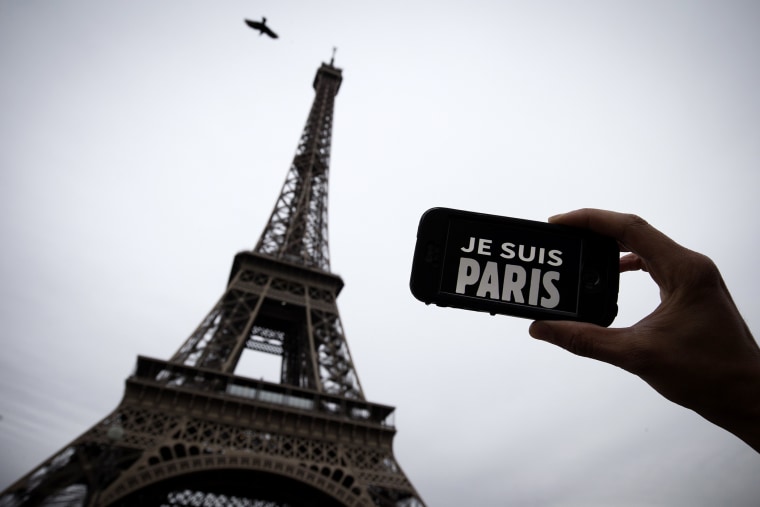In the wake of the deadly terrorist attacks in Paris that left at least 129 people dead and scores injured, social media played a crucial role as a tool to help people across the world communicate, help and show their support for France. Millions of people took to Facebook, Twitter and Instagram to post messages of solidarity and support. And thousands in both France and the U.S. offered shelter for any travelers or Parisians in need of a temporary place to stay.

Facebook immediately activated a crisis-focused “Safety Check" feature, which allowed users who reside in or are visiting Paris to notify their Facebook friends that they are safe. Many users praised Facebook for quickly launching the feature on Friday night. Facebook CEO Mark Zuckerberg wrote in a post on his own Facebook page: "My thoughts are with everyone in Paris tonight. Violence like this has no place in any city or country in the world. We've activated Safety Check, so if you're in Paris you can mark yourself safe or check on your friends and family."
On Saturday, Facebook took another step and launched an app that allowed the site’s users to overlay the red, white, and blue French flag on top of their profile picture to show their support for the French people. Below each picture, a message from Facebook appeared: “Change your profile picture to support France and the people of Paris.” Zuckerberg also changed his profile picture, and thousands of Facebook users followed suit.
On Twitter, Parisians and others across the world began using a number of hashtags to connect with others, offer support and show solidarity. The hashtag #PorteOuverte, which means “Open Door” in French, popped up on Friday night in the immediate aftermath of the attacks as a way for Parisians who were safe at home to offer shelter to others around Paris who may need a place to stay. The hashtag had been user over 611,000 times on Twitter as of early Saturday afternoon.
RELATED: American identified as victim in Paris massacre
Across the ocean, some Americans noticed French travelers tweeting that they were stuck in the U.S. after their flights to Paris were cancelled, and began using the hashtag #StrandedInUS to offer shelter in their homes for any Parisians who needed a place to stay. As of Saturday afternoon, the hashtag had been tweeted over 16,000 times.
The hashtag #PrayForParis also became a worldwide trending topic on many social platforms; as of Saturday afternoon, the hashtag had already been used over 5.7 million times on Twitter, and 4.8 million times on Instagram. Citizens around the world used the hashtag to share messages and images of support for the French people, include images featuring the French flag and Eiffel Tower.
